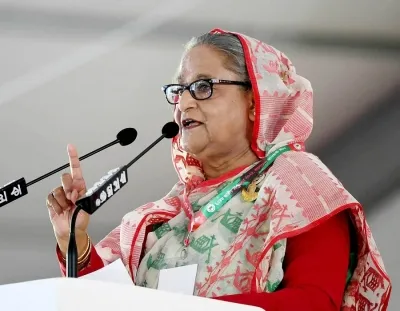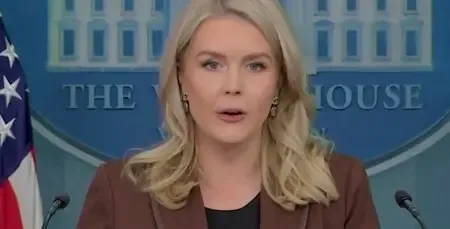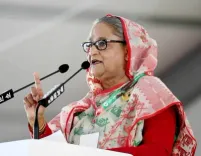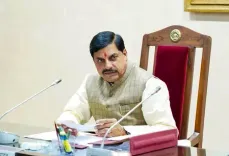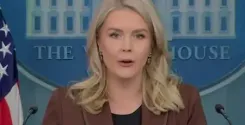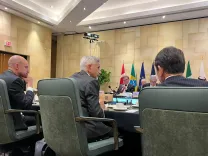How Are South Korea's Rival Parties Reacting to the New Trade Deal with the US?
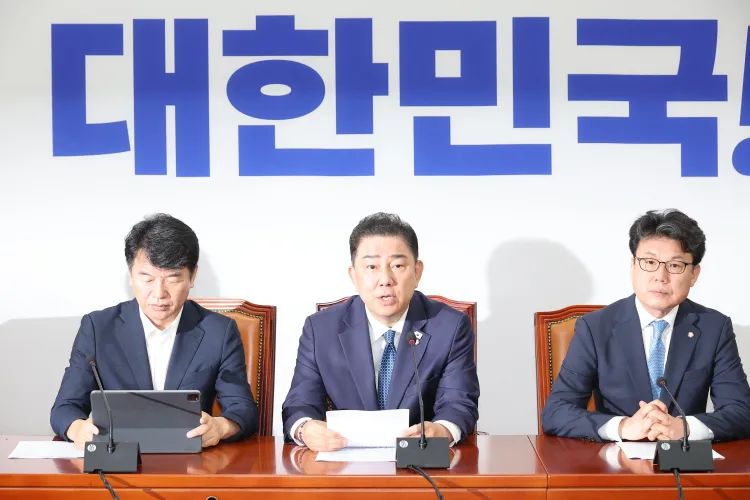
Synopsis
Key Takeaways
- 15% tariff imposed on South Korean goods.
- South Korea to invest $350 billion in the US.
- The deal aims to protect farmers' livelihoods.
- Concerns raised over economic burden by the opposition.
- Automotive industry may face increased competition from Japan.
Seoul, July 31 (NationPress) The reaction from South Korean political factions varied significantly on Thursday after the announcement of a trade agreement between South Korea and the United States, which includes a 15 percent tariff on South Korean exports.
This deal entails a reduction of US tariffs from 25 percent, as initially proposed by President Donald Trump, down to 15 percent. In return, Seoul has pledged to invest $350 billion in the US and acquire $100 billion worth of liquefied natural gas.
The ruling Democratic Party (DP) expressed enthusiasm for the agreement, calling it a “significant achievement” of President Lee Jae Myung's pragmatic approach to diplomacy.
“This recent deal is anticipated to enhance manufacturing collaboration and reinforce the alliance between South Korea and the US,” stated DP floor leader Kim Byung-kee following a policy discussion at the National Assembly.
“By safeguarding our farmers' livelihoods and ensuring food security, the deal underscores both the president's and the government's steadfast commitment to revitalizing the economy and supporting citizens' welfare.”
Notably, the agreement did not address sensitive sectors for South Korea, such as the rice and beef markets.
DP's chief spokesperson, Rep. Park Sang-hyuk, highlighted that the deal alleviates uncertainties that had been affecting the South Korean economy.
“Although the negotiations were challenging within a framework established by the US, our government endeavored to safeguard national interests,” Park remarked.
Conversely, the main opposition People Power Party (PPP) raised alarms regarding the financial obligations South Korea has taken on through the agreement, particularly the $350 billion investment commitment, as reported by Yonhap news agency.
“We are now facing a total of $450 billion in investments and purchases directed toward the US, which includes the $100 billion energy procurement and the $350 billion investment, surpassing our foreign exchange reserves,” noted PPP interim leader Song Eon-seog during a party gathering.
Song also expressed worries for the automotive sector, suggesting that Japan may secure a competitive edge since both nations are now subjected to a 15 percent tariff.
Since 2016, no US tariffs have been levied on South Korean automobiles due to a bilateral free trade agreement, while Japanese vehicles have been subject to a 2.5 percent tariff.

